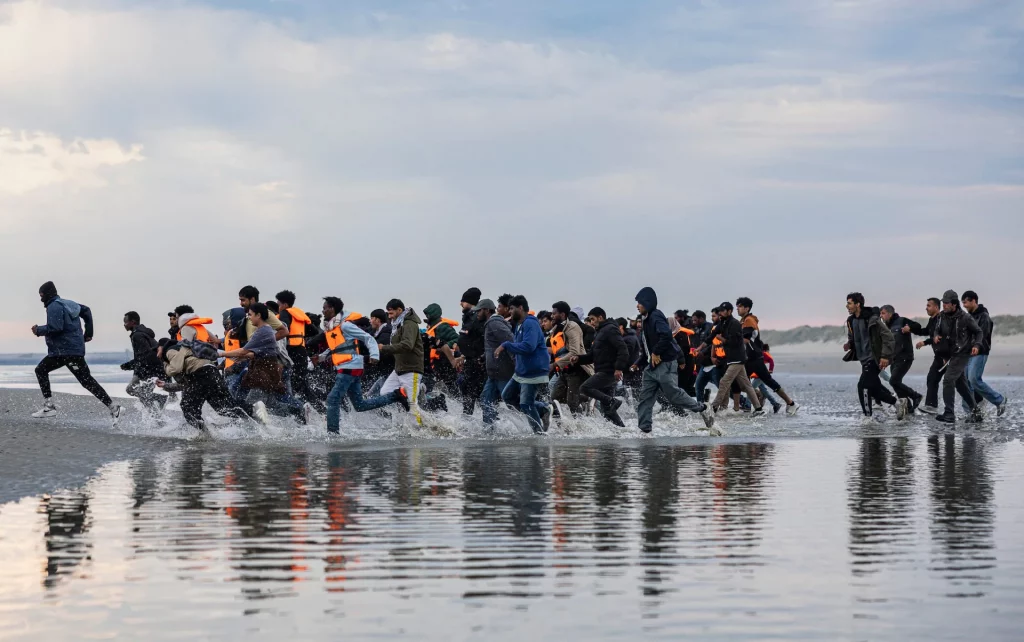Chinese-made mega dinghies are being blamed for the sharp rise in Channel migrant crossings, with the first pictures of one of these larger vessels appearing this week. The new boats, which are much bigger than standard dinghies, are being overloaded with migrants as smugglers try to maximize profits. One vessel spotted in the Channel carried up to 125 people, equaling the record number for a single crossing.
The latest development has raised serious safety concerns, as overcrowded boats are more likely to capsize or break apart mid-journey. Over the weekend, three people, including a child, lost their lives during separate crossing attempts. French authorities confirmed that in just two days, hundreds of migrants attempted the dangerous journey across one of the world’s busiest sea routes.
Police have pointed to Chinese companies as suppliers of the boats, with some adverts online openly referring to them as “immigrant boats.” While some adverts have since been altered, the vessels are still being sold for around £1,100 each when purchased in bulk. UK ministers say smugglers are turning to larger boats partly because supply chains for smaller ones are being disrupted.
Experts, however, argue the trend is driven by profit. Bigger boats allow traffickers to pack in more people and charge higher sums for crossings. Reports show that many of the boats carry “Made in China” stamps and are transported through Turkey and Germany before reaching the French coast. Despite UK efforts, securing cooperation with China to stop sales has been difficult.
The rise in crossings has put Labour’s migration policies under heavy scrutiny. Since coming to power, the number of arrivals has risen sharply, with more than 33,000 people crossing so far this year. At least 21 migrants, including children, have already died in 2025 during attempted journeys, and last year saw 78 deaths. Critics argue that Labour’s decision to scrap the Rwanda plan has weakened deterrence.
Home Secretary Shabana Mahmood said the crossings were “utterly unacceptable” and vowed to step up action against people-smuggling gangs. She added that a new deal with France would allow for some migrants to be deported back, with removals already underway. However, many deportations remain tied up in legal challenges under human rights and modern slavery laws.
In one tragic case this week, the body of a teenage boy was found washed up on a French beach after his boat failed mid-journey. Just a day earlier, two Somali women also died while attempting the crossing. Emergency services managed to rescue dozens of others, though many were left shaken after falling into the sea before their boat continued toward Dover.
The continuing deaths highlight the dangerous reality of Channel crossings despite government efforts. As smugglers adapt with new methods and larger boats, pressure is mounting on UK and French authorities to stop the flow and prevent more lives from being lost at sea.

